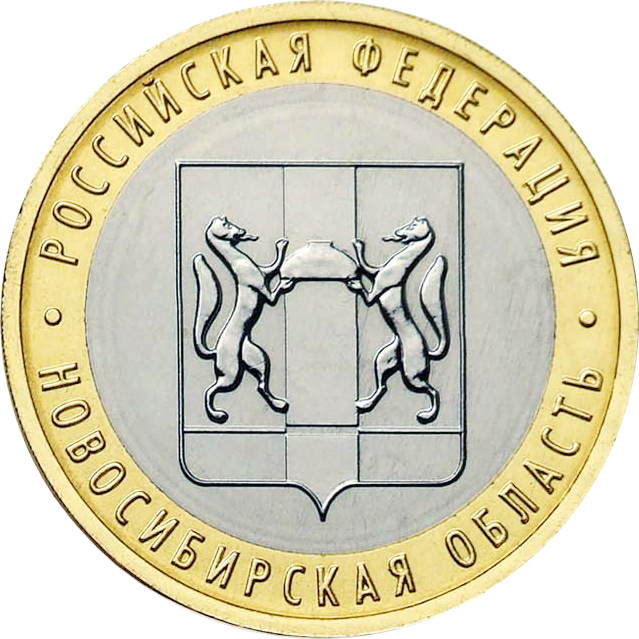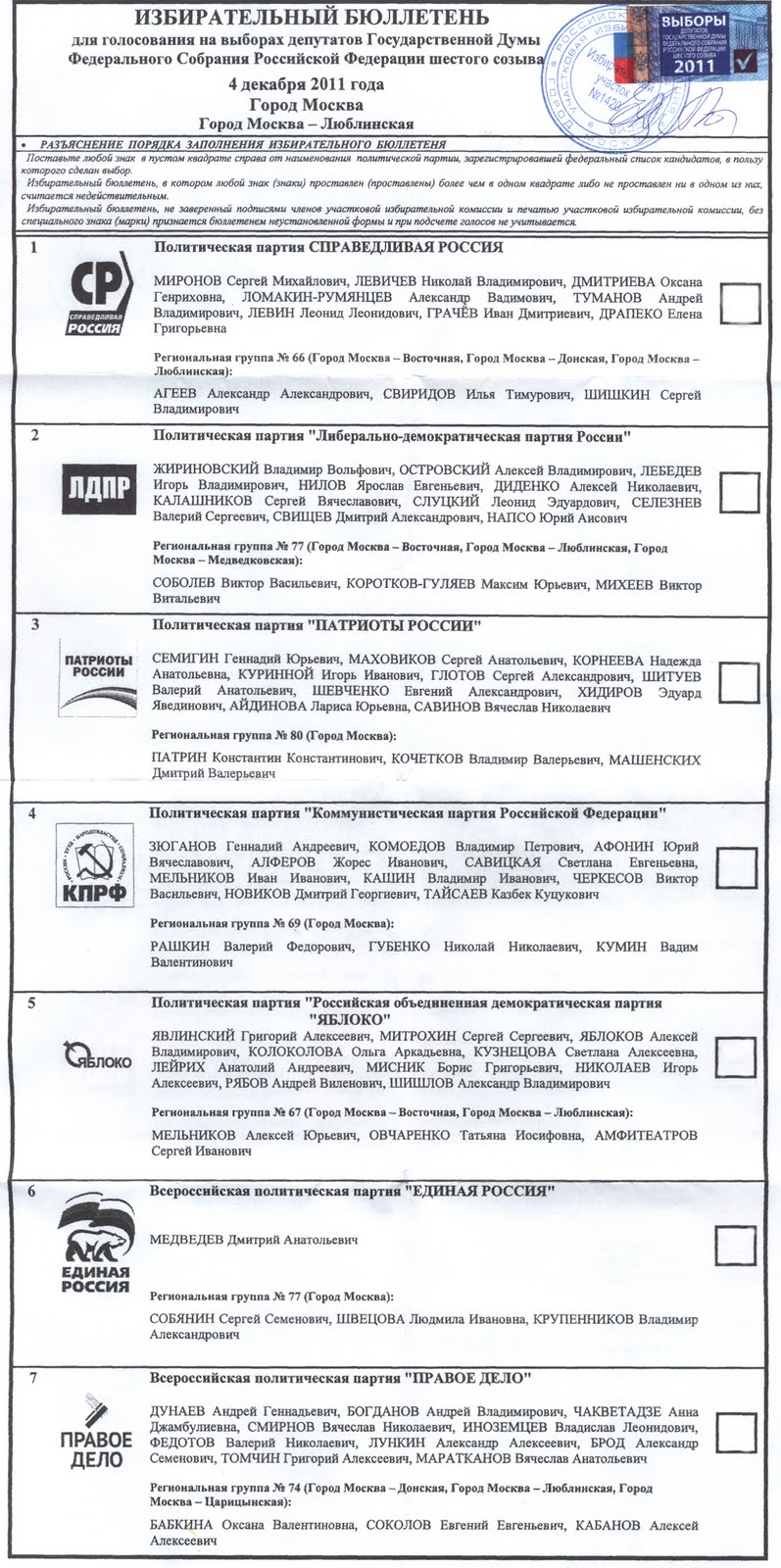|
Alexander Abalakov
Alexander Nikolayevich Abalakov (russian: Алекса́ндр Никола́евич Абала́ков; born 29 November 1959) is a Russian politician and member of the State Duma of the Russian Federation for the Communist Party of the Russian Federation. Early life and education Alexander Abalakov was born on 29 November 1959 in the village of Zalesovo, Altai Krai, Russian SFSR, Soviet Union. In 1977, he enrolled Novosibirsk Electrotechnical Institute, from which he graduated with honors in 1982 as a certified electrical engineer with a degree in Information and Measuring Technology. Career In 1979, he began his career as a laboratory assistant in the research sector. He worked at his occupation in nuclear and tool-making industry from 1982 to 1989. In 1989, he, with the help of his companions, established and took over a cooperative, which is the ancestor of today's F1 Business Group. In December 2005, he was elected deputy of the Novosibirsk Regional Council of Deputies ... [...More Info...] [...Related Items...] OR: [Wikipedia] [Google] [Baidu] |
Russia
Russia (, , ), or the Russian Federation, is a transcontinental country spanning Eastern Europe and Northern Asia. It is the largest country in the world, with its internationally recognised territory covering , and encompassing one-eighth of Earth's inhabitable landmass. Russia extends across eleven time zones and shares land boundaries with fourteen countries, more than any other country but China. It is the world's ninth-most populous country and Europe's most populous country, with a population of 146 million people. The country's capital and largest city is Moscow, the largest city entirely within Europe. Saint Petersburg is Russia's cultural centre and second-largest city. Other major urban areas include Novosibirsk, Yekaterinburg, Nizhny Novgorod, and Kazan. The East Slavs emerged as a recognisable group in Europe between the 3rd and 8th centuries CE. Kievan Rus' arose as a state in the 9th century, and in 988, it adopted Orthodox Christianity from the ... [...More Info...] [...Related Items...] OR: [Wikipedia] [Google] [Baidu] |
6th State Duma Of The Russian Federation
The State Duma of the Federal Assembly of the Russian Federation of the 6th convocation (Russian: Государственная Дума Федерального Собрания Российской Федерации VI созыва) is a former convocation of the legislative branch of the State Duma, Lower House of the Russian Parliament. The 6th convocation meets at the State Duma building in Moscow, having begun its term on December 21, 2011 following the last session of the 5th State Duma. The term of office expired October 5, 2016, when the next parliamentary elections. The 6th State Duma's composition was based upon the results of the 2011 parliamentary election. Of the seven parties participating in the elections, only four were able to overcome the 7% election threshold to gain representation based upon the proportional representation system. Leadership On December 21, 2011, the parliament elected Sergey Naryshkin from the United Russia as the Chairman of the Stat ... [...More Info...] [...Related Items...] OR: [Wikipedia] [Google] [Baidu] |
Communist Party Of The Russian Federation Members
Communism (from Latin la, communis, lit=common, universal, label=none) is a far-left sociopolitical, philosophical, and economic ideology and current within the socialist movement whose goal is the establishment of a communist society, a socioeconomic order centered around common ownership of the means of production, distribution, and exchange which allocates products to everyone in the society.: "One widespread distinction was that socialism socialised production only while communism socialised production and consumption." Communist society also involves the absence of private property, social classes, money, and the state. Communists often seek a voluntary state of self-governance, but disagree on the means to this end. This reflects a distinction between a more libertarian approach of communization, revolutionary spontaneity, and workers' self-management, and a more vanguardist or communist party-driven approach through the development of a constitutional socialist sta ... [...More Info...] [...Related Items...] OR: [Wikipedia] [Google] [Baidu] |
People From Altai Krai
A person ( : people) is a being that has certain capacities or attributes such as reason, morality, consciousness or self-consciousness, and being a part of a culturally established form of social relations such as kinship, ownership of property, or legal responsibility. The defining features of personhood and, consequently, what makes a person count as a person, differ widely among cultures and contexts. In addition to the question of personhood, of what makes a being count as a person to begin with, there are further questions about personal identity and self: both about what makes any particular person that particular person instead of another, and about what makes a person at one time the same person as they were or will be at another time despite any intervening changes. The plural form " people" is often used to refer to an entire nation or ethnic group (as in "a people"), and this was the original meaning of the word; it subsequently acquired its use as a plural f ... [...More Info...] [...Related Items...] OR: [Wikipedia] [Google] [Baidu] |
Living People
Related categories * :Year of birth missing (living people) / :Year of birth unknown * :Date of birth missing (living people) / :Date of birth unknown * :Place of birth missing (living people) / :Place of birth unknown * :Year of death missing / :Year of death unknown * :Date of death missing / :Date of death unknown * :Place of death missing / :Place of death unknown * :Missing middle or first names See also * :Dead people * :Template:L, which generates this category or death years, and birth year and sort keys. : {{DEFAULTSORT:Living people 21st-century people People by status ... [...More Info...] [...Related Items...] OR: [Wikipedia] [Google] [Baidu] |
1959 Births
Events January * January 1 - Cuba: Fulgencio Batista flees Havana when the forces of Fidel Castro advance. * January 2 - Lunar probe Luna 1 was the first man-made object to attain escape velocity from Earth. It reached the vicinity of Earth's Moon, and was also the first spacecraft to be placed in heliocentric orbit. * January 3 ** The three southernmost atolls of the Maldive Islands, Maldive archipelago (Addu Atoll, Huvadhu Atoll and Fuvahmulah island) United Suvadive Republic, declare independence. ** Alaska is admitted as the 49th U.S. state. * January 4 ** In Cuba, rebel troops led by Che Guevara and Camilo Cienfuegos enter the city of Havana. ** Léopoldville riots: At least 49 people are killed during clashes between the police and participants of a meeting of the ABAKO Party in Kinshasa, Léopoldville in the Belgian Congo. * January 6 ** Fidel Castro arrives in Havana. ** The International Maritime Organization is inaugurated. * January 7 – The United States reco ... [...More Info...] [...Related Items...] OR: [Wikipedia] [Google] [Baidu] |
Novosibirsk Oblast
Novosibirsk Oblast (russian: Новосиби́рская о́бласть, ''Novosibirskaya oblast'') is a federal subject of Russia (an oblast) located in southwestern Siberia. Its administrative and economic center is the city of Novosibirsk. The population was 2,788,849 as of the 2018 Census. Geography Overview Novosibirsk Oblast is located in the south of the West Siberian Plain, at the foothills of low Salair ridge, between the Ob and Irtysh Rivers. The oblast borders Omsk Oblast in the west, Kazakhstan ( Pavlodar Province) in the southwest, Tomsk Oblast in the north, Kemerovo Oblast in the east, and Altai Krai in the south. The territory of the oblast extends for more than from west to east, and for over from north to south. The oblast is mainly plain; in the south the steppes prevail; in the north enormous tracts of woodland with great number of marshes prevail. There are many lakes, the largest ones located at the south. The majority of the rivers belo ... [...More Info...] [...Related Items...] OR: [Wikipedia] [Google] [Baidu] |
2011 Russian Legislative Election
Legislative elections were held in Russia on 4 December 2011. At stake were the 450 seats in the 6th State Duma, the lower house of the Federal Assembly (the legislature). United Russia won the elections with 49.32% of the vote, taking 238 seats or 52.88% of the Duma seats. This result was down from 64.30% of the vote and 70% of the seats in the 2007 elections. The Communist Party of the Russian Federation received 19.19% of the vote and 92 seats, while A Just Russia received 13.24% and 64 seats, with the Liberal Democratic Party of Russia getting 56 seats with 11.67% of the vote. Yabloko, Patriots of Russia and Right Cause did not cross the 7% election threshold. The list of parties represented in the parliament did not change. United Russia lost the two-thirds constitutional majority it had held prior to the election, but it still won a majority of seats in the Duma, even though it had slightly less than 50% of the popular vote. The Communist Party, Liberal Democratic ... [...More Info...] [...Related Items...] OR: [Wikipedia] [Google] [Baidu] |
State Duma Of The Russian Federation
The State Duma (russian: Госуда́рственная ду́ма, r=Gosudárstvennaja dúma), commonly abbreviated in Russian as Gosduma ( rus, Госду́ма), is the lower house of the Federal Assembly of Russia, while the upper house is the Federation Council. The Duma headquarters are located in central Moscow, a few steps from Manege Square. Its members are referred to as deputies. The State Duma replaced the Supreme Soviet as a result of the new constitution introduced by Boris Yeltsin in the aftermath of the Russian constitutional crisis of 1993, and approved in a nationwide referendum. In the 2007 and 2011 Russian legislative elections a full party-list proportional representation with 7% electoral threshold system was used, but this was subsequently repealed. The legislature's term length was initially 2 years in the 1993–1995 elections period, and 4 years in 1999–2007 elections period; since the 2011 elections the term length is 5 years. History Early hi ... [...More Info...] [...Related Items...] OR: [Wikipedia] [Google] [Baidu] |
Novosibirsk State Technical University
Novosibirsk State Technical University ( Abbreviation: NSTU), until 1992 the Novosibirsk Electrotechnical Institute (NETI), is one of the major research and educational centers of Russia as well as one of the top technical universities located in Novosibirsk, Russia. History The university was established in accordance with the USSR Council of Ministries' Decree of 19 August 1950. It has 11 faculties and 2 institutes: Institute of Social Rehabilitation and Institute of Distant Education, 73 departments, 4 branches and 9 NSTU representative offices. At present, more than 14,000 students are receiving quality educations at NSTU. The teaching staff consists of 968 full-time and 216 part-time lecturers including 184 Professors, Doctors of Science, 762 Associate Professors and Candidates of Science. The center of Information Technologies provides the university with a local network of more than 600 computers. The network has more than 5 km of connections with access to the inter ... [...More Info...] [...Related Items...] OR: [Wikipedia] [Google] [Baidu] |
Communist Party Of The Russian Federation
The Communist Party of the Russian Federation (CPRF; russian: Коммунистическая Партия Российской Федерации; КПРФ, Kommunisticheskaya Partiya Rossiyskoy Federatsii; KPRF) is a left-wing nationalist and communist political party in Russia that officially adheres to Marxist–Leninist philosophy. It is the second-largest political party in Russia after United Russia. The youth organisation of the party is the Leninist Young Communist League. The CPRF can trace its origins to the Russian Social Democratic Labour Party which was established in 1898 and the party split in 1903 into a Menshevik (minority) and Bolshevik (majority) faction; the latter, led by Vladimir Lenin, is the direct ancestor of the Communist Party of the Soviet Union (CPSU) and is the party that seized power in the October Revolution of 1917. After the CPSU was banned in 1991 by then–Russian President Boris Yeltsin in the aftermath of the failed coup attempt, the CP ... [...More Info...] [...Related Items...] OR: [Wikipedia] [Google] [Baidu] |
.jpeg/1200px-Document_of_the_Deputy_of_the_Russian_Parliament_(6_calling).jpeg)
_1938.jpg)


